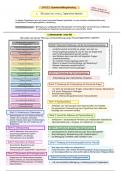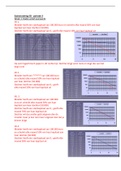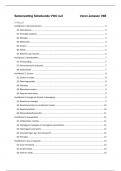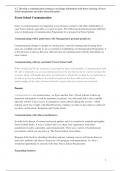Contents
What is social cognitonn.......................................................................................................................2
Thinking about people: a special casen..............................................................................................2
Why people think, and why they don’t..............................................................................................2
Goals of thinking................................................................................................................................2
Automatc and controlled thinking....................................................................................................2
Thought suppression and ironic processes........................................................................................4
Attributons: why did that happenn.......................................................................................................5
It’s not my fault: explaining success and failure................................................................................5
You looking at men The actor/ observer bias.....................................................................................6
The attributon cube and making excuses..........................................................................................6
Heuristcs: mental shortcuts..................................................................................................................7
Representatveness heuristc.............................................................................................................7
Availability heuristc...........................................................................................................................7
Simulaton heuristc...........................................................................................................................7
Anchoring and adjustment heuristc..................................................................................................7
Errors and biases...................................................................................................................................8
Types of cognitve errors and biases..................................................................................................8
Are people really idiotsn......................................................................................................................10
How serious are the errorsn............................................................................................................10
Reducing cognitve errors................................................................................................................10
, What is social cognition?
Social cognition – a movement in social psychology that began in the 1970s that focused on
thoughts about people and about social relationships
- While psychology had completely been focused on behaviorism before, recognition
emerged that behavior could not be completely explained when thoughts and feelings
were neglected.
Thinking about people: a special case?
Social psychologists study how people think about people. Other people are the most common
subject of thought for humans. This fits with the idea that people are cultural animals and seek
social acceptance: people play the main role in their life. This phenomenon also shows how
inner processes serve interpersonal processes; the inner processes help one to relate to others,
enabling the formation and maintenance of relations and social acceptance.
Why people think, and why they don’t
In the human brain, compared to other animal brains, a relatively large part is devoted to
higher-order functions (such as thinking) compared to motor functions.
Cognitive miser – a term used to describe people’s reluctance to do much extra thinking
- People can do a lot of thinking, but generally don’t want to
- Also, the capacity to think is not endless
The difficulty of thinking is influenced by the personal interest in the subject, and whether the
thinking is done automatically or consciously. The duplex mind makes sure most of one’s
thinking happens automatically; however, not all thinking can be done automatically, such as
logical reasoning. Sometimes the automatic mind can give some rough estimates, while in other
cases, conscious thinking is necessary, requiring more effort.
Goals of thinking
3 main goals:
- Finding the right answer to some problem or question; finding the truth
o Using known information to seek a true answer
- Reaching a preferred conclusion; finding a desired answer
o Thinking of arguments to establish your conclusion
- Reaching a pretty good answer or decision quickly; finding a roughly true answer
quickly
Automatic and controlled thinking
As said before, some thinking happens automatically, while some thinking needs conscious
effort, such as the Stroop test.
Stroop test – a standard measure of effortful control over responses, requiring participants to
identify the color of a word (which may name a different color)












